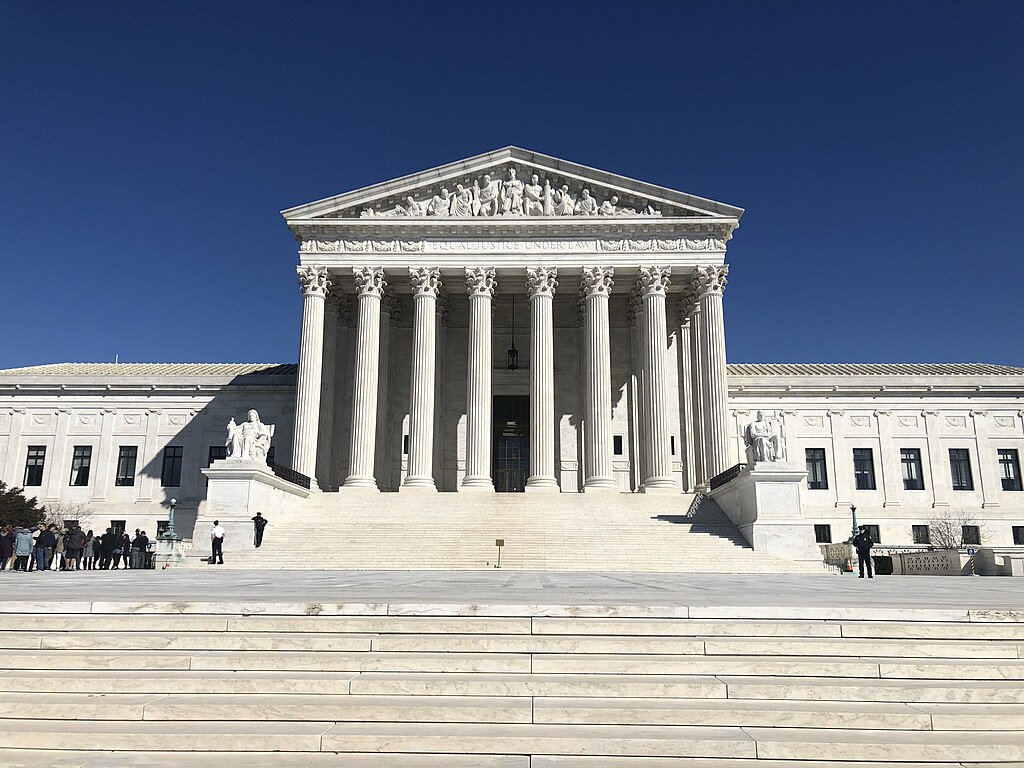The U.S. Supreme Court appears inclined to uphold Tennessee's ban on gender-affirming medical treatments for transgender minors, a decision that could significantly impact similar laws nationwide.
Legal Context and Arguments
Tennessee's law, known as SB1, prohibits puberty blockers, hormone therapy, and gender-affirming surgeries for individuals under 18. The state argues that these measures protect minors from making irreversible decisions at a young age. During recent oral arguments, some justices suggested that such policy decisions are best left to elected lawmakers rather than the judiciary.
Conversely, challengers, including the Biden administration and families of transgender minors, contend that the ban violates the Equal Protection Clause of the 14th Amendment. They assert that denying access to gender-affirming care discriminates based on sex and gender identity, causing undue harm to transgender youth.
Potential Nationwide Impact
A ruling in favor of Tennessee could validate similar bans in over 25 states, potentially restricting access to gender-affirming care across the country. Legal experts warn that such a decision might undermine established precedents concerning sex-based discrimination, affecting not only transgender individuals but also broader anti-discrimination protections.
Public Reaction
The case has ignited a spectrum of reactions on social media:
-
@TransRightsNow: "Upholding this ban would set a dangerous precedent for transgender rights nationwide."
-
@ParentAdvocate: "Parents, not the government, should decide what's best for their children's health."
-
@LegalEagle: "This case could redefine the judiciary's role in safeguarding minority rights against majority rule."
-
@HealthEquity: "Access to medically necessary care shouldn't be subject to political whims."
-
@YouthVoice: "Trans youth deserve support and affirmation, not legal barriers to their well-being."
-
@PolicyWatcher: "The Court's decision will have lasting implications for healthcare policy and civil rights."
Looking Ahead
The Supreme Court's decision, expected by June 2025, will have profound implications for transgender rights and healthcare access in the United States. As the nation awaits the outcome, the case underscores the ongoing debate over the balance between state authority and individual rights in the realm of medical care.



 Suspected Drone Strike Hits RAF Akrotiri Base in Cyprus, Causing Limited Damage
Suspected Drone Strike Hits RAF Akrotiri Base in Cyprus, Causing Limited Damage  Federal Judge Blocks Virginia Social Media Age Verification Law Over First Amendment Concerns
Federal Judge Blocks Virginia Social Media Age Verification Law Over First Amendment Concerns  Yoon Suk Yeol Apologizes After Life Sentence for Martial Law Decree in South Korea
Yoon Suk Yeol Apologizes After Life Sentence for Martial Law Decree in South Korea  California Seeks Court Order to Halt Amazon’s Alleged Price Inflation Practices
California Seeks Court Order to Halt Amazon’s Alleged Price Inflation Practices  Trump Says U.S. Combat Operations in Iran Will Continue Until Objectives Are Met
Trump Says U.S. Combat Operations in Iran Will Continue Until Objectives Are Met  Trump Warns Iran as Gulf Conflict Disrupts Oil Markets and Global Trade
Trump Warns Iran as Gulf Conflict Disrupts Oil Markets and Global Trade  U.S. Blocks Venezuela From Funding Nicolas Maduro’s Legal Defense in New York Drug Trafficking Case
U.S. Blocks Venezuela From Funding Nicolas Maduro’s Legal Defense in New York Drug Trafficking Case  More U.S. Investors Join Arbitration Against South Korea Over Coupang Dispute
More U.S. Investors Join Arbitration Against South Korea Over Coupang Dispute  Argentina Tax Reform 2026: President Javier Milei Pushes Lower Taxes and Structural Changes
Argentina Tax Reform 2026: President Javier Milei Pushes Lower Taxes and Structural Changes  UK Accepts U.S. Request to Use British Bases for Defensive Strikes on Iranian Missiles
UK Accepts U.S. Request to Use British Bases for Defensive Strikes on Iranian Missiles  Supreme Court Reviews Trump Administration Policies on Tariffs, Immigration, and Federal Power
Supreme Court Reviews Trump Administration Policies on Tariffs, Immigration, and Federal Power  Maduro Seeks Dismissal of U.S. Drug Trafficking Case, Citing Sanctions Interference
Maduro Seeks Dismissal of U.S. Drug Trafficking Case, Citing Sanctions Interference  Pentagon Leaders Monitor U.S. Iran Operation from Mar-a-Lago
Pentagon Leaders Monitor U.S. Iran Operation from Mar-a-Lago  Failure of US-Iran talks was all-too predictable – but Trump could still have stuck with diplomacy over strikes
Failure of US-Iran talks was all-too predictable – but Trump could still have stuck with diplomacy over strikes  Trump Administration Sues Harvard Over Alleged Race-Based Admissions Practices
Trump Administration Sues Harvard Over Alleged Race-Based Admissions Practices  U.S. Deploys Tomahawks, B-2 Bombers, F-35 Jets and AI Tools in Operation Epic Fury Against Iran
U.S. Deploys Tomahawks, B-2 Bombers, F-35 Jets and AI Tools in Operation Epic Fury Against Iran  Macron Urges Emergency UN Security Council Meeting as US-Israel Strikes on Iran Escalate Middle East Tensions
Macron Urges Emergency UN Security Council Meeting as US-Israel Strikes on Iran Escalate Middle East Tensions 































